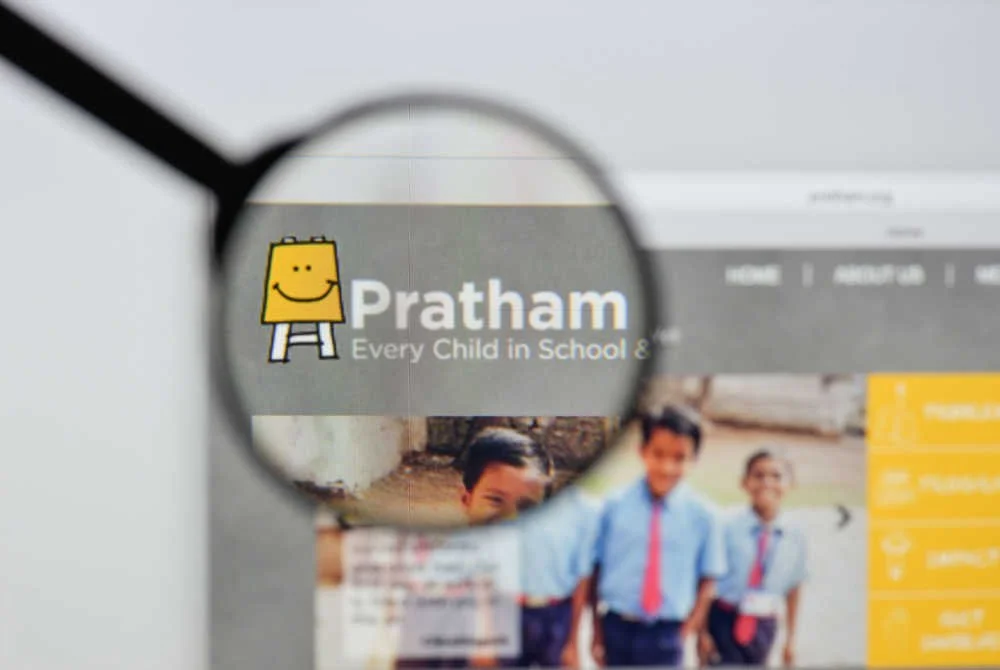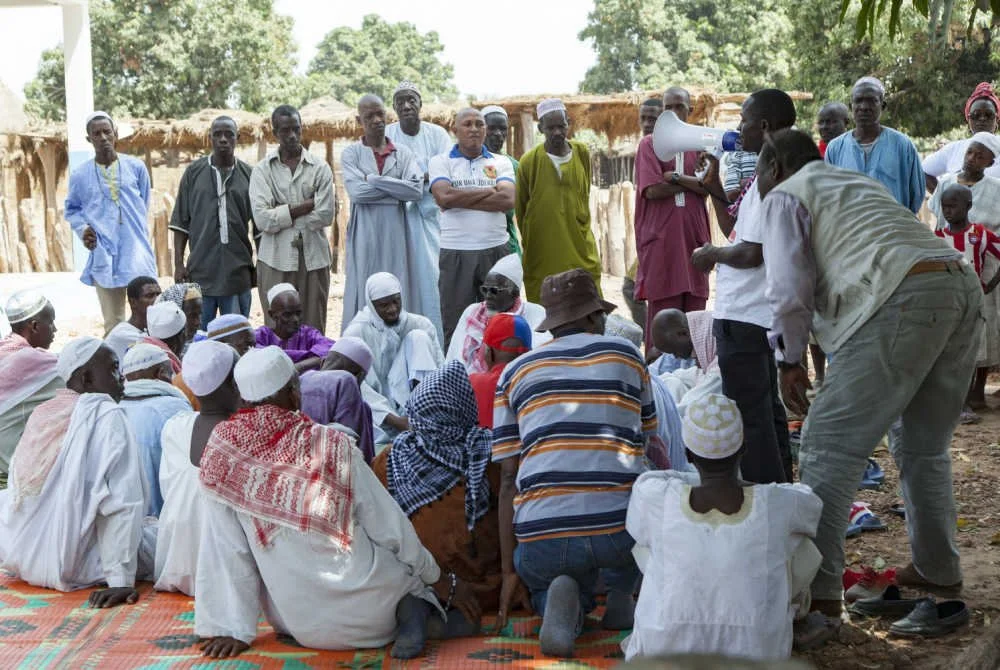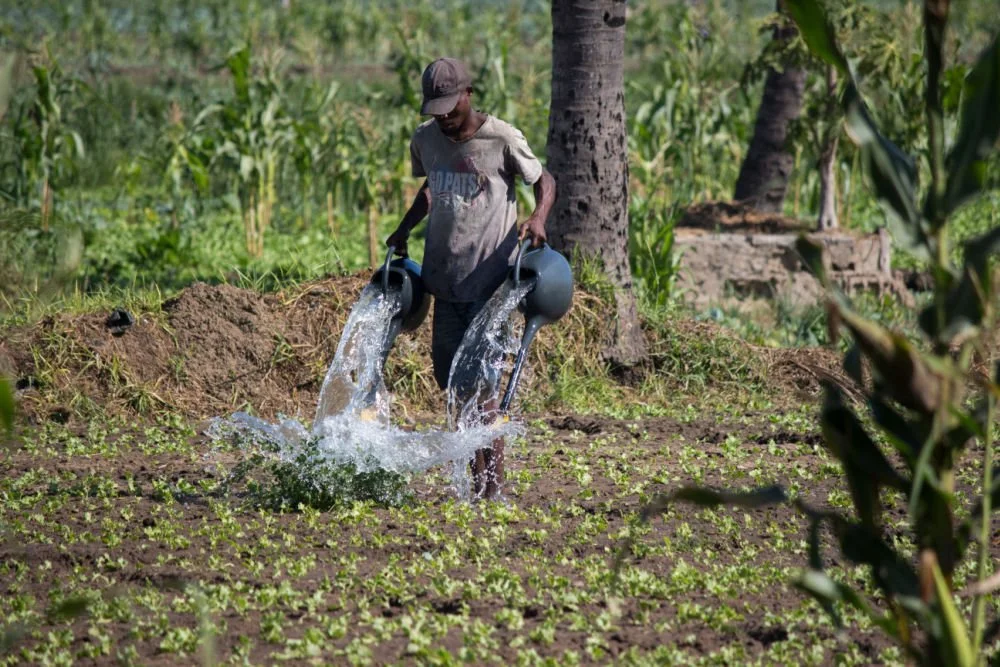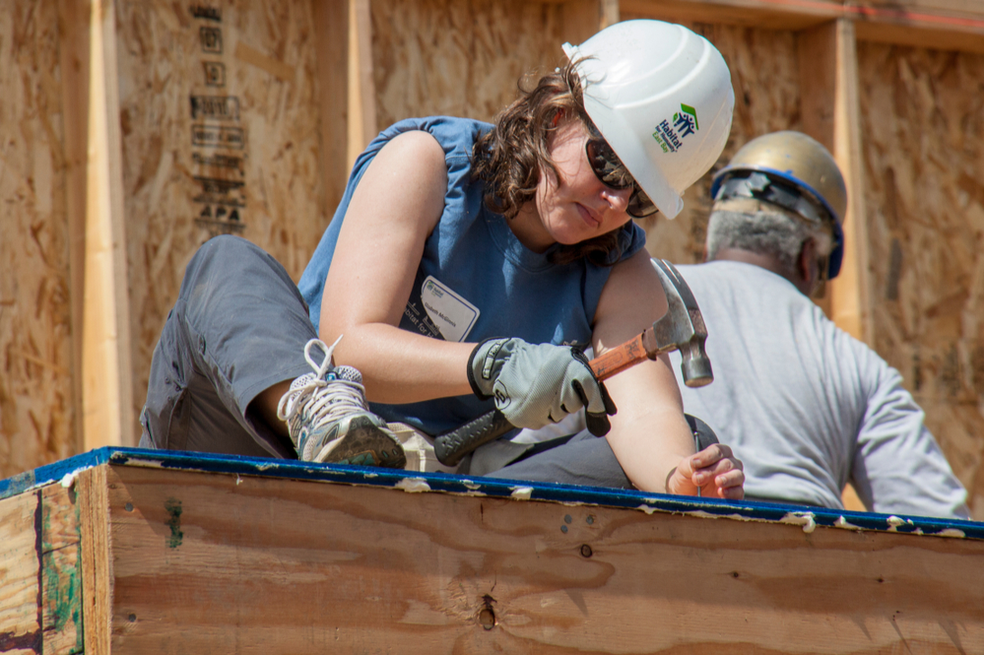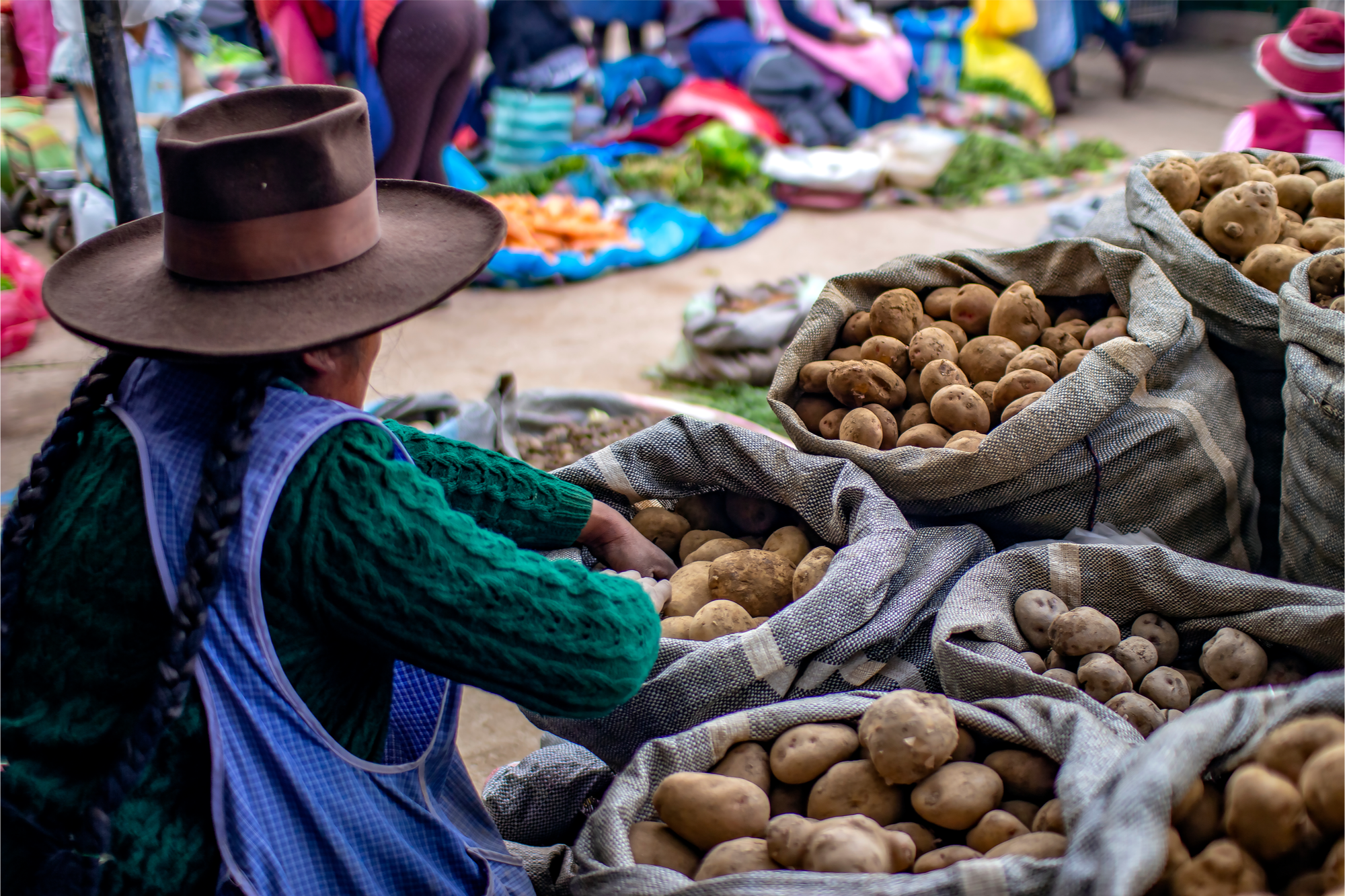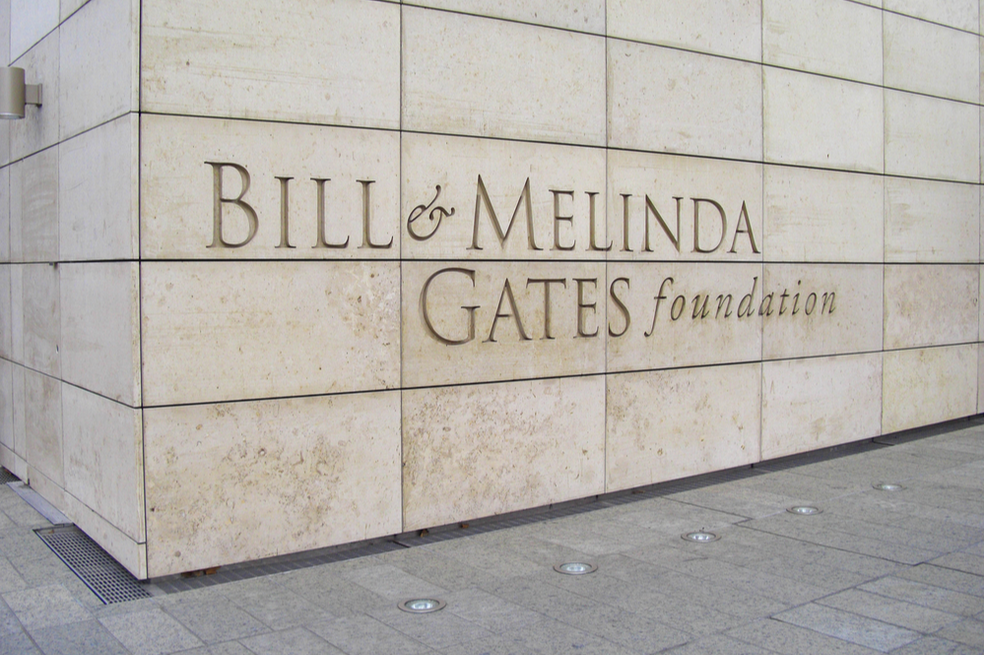The Edge Walkers: How a Global Women’s Fund Sustains Grassroots Work
/We all know that women around the world face disproportionate burdens, while women-led and women-serving groups remain underfunded. Between 2011 and 2015, women and girls—half of the global population—were the focus of 23 percent of the $9.4 billion in foundation human rights funding, with over a third of that amount staying in North America. This data highlights a lack of support for women in other areas, notably the Global South. While numerous funders do provide support for women internationally, these stats suggest more money for and commitment to these groups is in order.
Some major funders of women overseas include the Susan Thompson Buffett, Ford, NoVo, Bill and Melinda Gates, Open Society, Hewlett and Packard foundations, along with about 40 women’s funds—including the African Women’s Development Fund, South Asia Women’s Fund and Fondo de Mujeres del Sur, in addition to other regional and community philanthropies. Women’s funds can and often do play a crucial role as partners with and intermediaries for smaller and/or less experienced local women’s and LGBT+ organizations. The oldest international women’s fund, Mama Cash, defines these funds as “public foundations that support women-led solutions to the root causes of social injustice.”
The Global South is the region where MATCH International Women’s Fund (the MATCH fund) of Canada directs its support. Because the MATCH fund’s backing of women and girls is inclusive of trans and broader LGBT+ communities, it connects with multiple populations in need of funding around the globe, and we’ve seen more women-focused givers taking on that broader role. This is also an interesting philanthropy because of its focus on grantmaking to grassroots organizations and its related policy efforts in partnership with the Nobel Women’s Initiative.
Shifting the Power and Managing Risks
Wariri Muhungi, manager of global programs at the MATCH fund, tells us that grassroots women’s, girls and trans rights organizations and feminist movements around the world “are chronically underfunded,” though their “ideas, actions and perseverance are crucial for achieving breakthroughs for human rights.” In 2010, a study of women’s organizations around the planet found they had median budgets of $20,000.
The MATCH Fund has backed women’s rights organizations in Latin America, sub-Saharan Africa, the Middle East and South Asia. Much of its grantmaking offers core and capacity-building support. These kinds of grants are particularly powerful for under-resourced, community-based groups, who can find themselves in a bit of a catch-22 when it comes to funding. Many foundations say it’s hard to back these groups because they lack capacity, yet without financial help, it’s hard for them to enhance their capacity, organizational stability and programmatic rigor. Women’s funds can play a vital role connecting fledgling grassroots organizations with hesitant funders.
“Supporting women’s funds is one of the most effective ways for donors to get resources to southern women’s rights organizations and movements, especially those considered too small or risky by mainstream funders,” according to the global Organization for Economic Cooperation and Development (OECD), which has 36 member countries.
Augusta Hagen-Dillon, program officer at Prospera International Network of Women’s Funds, which supports women’s funds and grassroots groups in over 170 countries, wrote on these topics for the Human Rights Funders Network blog. She said some foundations also cite the risk of funding in conflict areas and the collection of laws preventing or complicating foreign funding as barriers to backing lesser-known groups abroad.
“Responsibility to address and overcome these challenges rests on the shoulders of funders with influence and resources,” she said. She also pointed out that Global South organizations “generally have little to no access to funding from their own states or citizens, particularly for women’s and girls’ rights,” and that a very limited amount of the funding moving between nations reaches local women’s rights groups.
In a 2018 report it co-published with the Nobel Women’s Initiative called “Shifting the Power: Opportunities for Innovative Partnerships with Women’s Movements,” the MATCH fund similarly advised the Canadian government to “accept risks and manage them” when funding locally based women’s rights organizations abroad. The Nobel Women’s Initiative was formed by women peace laureates and is also based in Canada. The groups recommend diversifying grantmaking portfolios in order to manage risks, pointing out that “many women’s organizations already work in consortiums that effectively spread this risk and provide mutual support among members.”
The “Shifting the Power” publication reported on a 2018 event of the same name that brought together government and civil society representatives, international experts, and activists. The MATCH fund and Nobel Women’s Initiative, in partnership with Global Affairs Canada, held this convening to discuss how Canada can best strengthen women’s rights organizations. The event was created in response to the launch of Canada’s Feminist International Assistance Policy in 2017, which allocated $150 million to the Women’s Voice and Leadership Program, “signaling a commitment to work closely with local women’s organizations to advance the Sustainable Development Goals.” The Shifting the Power report offers recommendations and steps to fulfill this commitment. Along with backing consortiums, it calls for increased support for grassroots women’s movements and for women’s funds run by and for women activists.
This event and report are examples of how the MATCH fund engages in policy work along with monetary giving, a play we’ve seen more philanthropies willing to make lately. Beth Woroniuk, policy lead at the MATCH fund, says her organization and the Nobel Women's Initiative “share the common goal of seeing more and better quality funding for women's rights organizations in the Global South.”
She adds that the Nobel Women's Initiative is experienced in advocacy and campaigning, and that while “the MATCH fund is primarily a grantmaking organization, we do have ideas and recommendations on how Canada can better support and resource feminist movements.”
Supporting the Edge Walkers
The MATCH Fund describes its grantmaking as supporting groups that are “holding ground” (sustaining women's rights, especially against challenges) and “breaking ground” (launching innovative approaches to systemic change). It gave out about CA$12 million (about U.S. $9.1 million) in its previous form as MATCH International between 1976 and 2013, and has since given approximately CA$1 million as the MATCH fund. Average grants fall between CA$10,000 and CA$20,000.
This fund states that their grantees are “innovating every day within the most restrictive contexts”—these groups can be highly productive, even with limited means and while at times facing societal backlash, including threats and violence. One of the fund’s recent grant recipients—an unnamed staff member at Crown the Woman, a women’s rights group in Sudan—wants grassroots organizations’ perseverance and successes to be recognized. “It is difficult to receive funding because of the misconception that grassroots organizations lack capacity to do meaningful work. In reality, we have been able to advocate for so many feminist issues, from ending child marriage and gender-based violence, to peace building and education.”
In a 2018 Time article on the importance of funding women’s groups, Melinda Gates wrote, “Simply put, women get things done,” citing a 2012 study on violence against women that found the mobilization of feminist movements to be more important for progress than national wealth, left-wing political parties or the election of female representatives.
“Why?” Gates writes. “For one, women’s movements tend to be driven by people who share a deep, personal stake in the future of their communities.”
The MATCH fund agrees that community members are powerful change-makers. “We’re all about homegrown solutions… we don’t have the solutions. And we don’t need to… because the brave women, girls and trans folks working at the grassroots level have the solutions,” it states.
Its most recent grants cycle of 2019 focused on 27 feminist groups in Francophone Africa, North Africa and the Middle East. In this new cohort, it sought out groups working in intersectional feminist territory, including environmental justice and the rights of indigenous women, the LGBTQ community, rural women, those with disabilities, domestic and “other precarious workers.” The 27 groups will share about CA$400,000 this year, and 21 are new grantees that will now receive multi-year support.
The causes funded are diverse—one grant goes to an organization of disabled indigenous women in Nepal, while another provides queer women, including LGBT+ and non-binary people in Uganda with training in tech and social media skills and safety. In the past, this funder has supported groups working with migrant issues, genital mutilation, climate entrepreneurship and more.
“Many of the partners in this new cohort are edge-walkers organizing at the margins and supporting feminist movements that most traditionally fall under the radar of mainstream funding,” Muhungi said.













